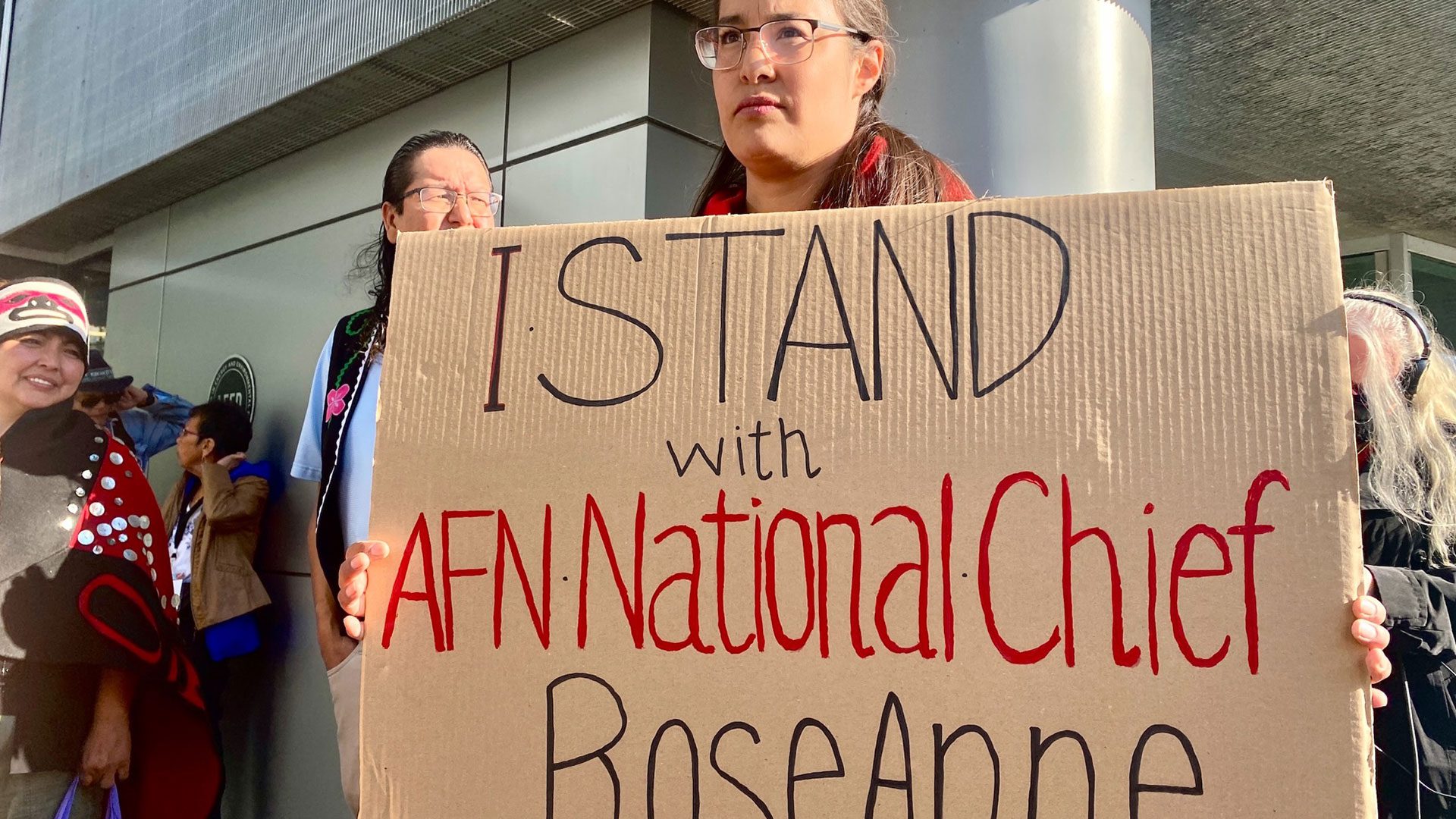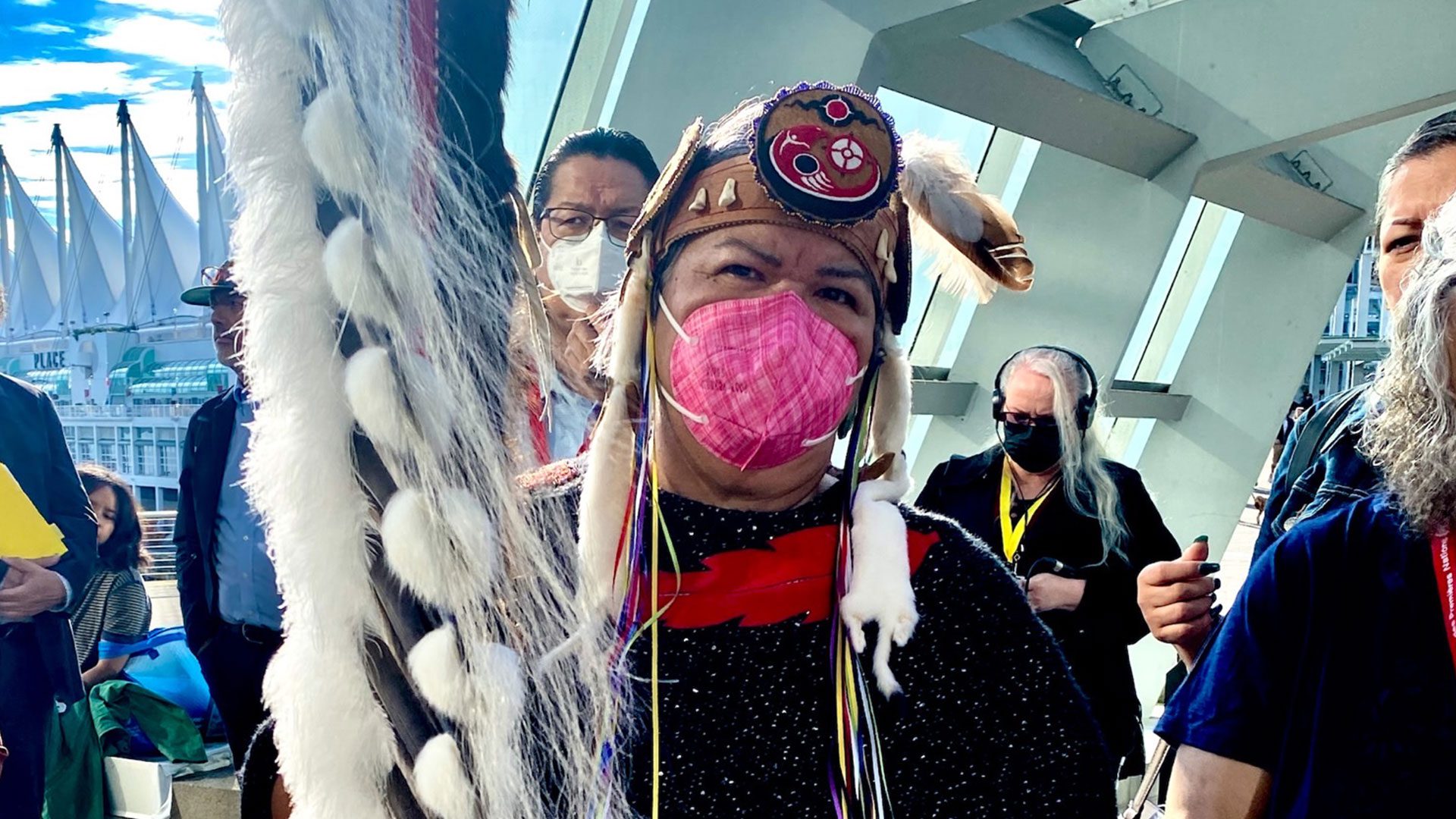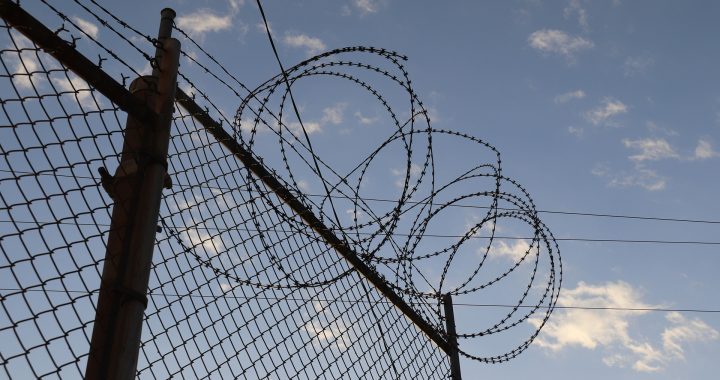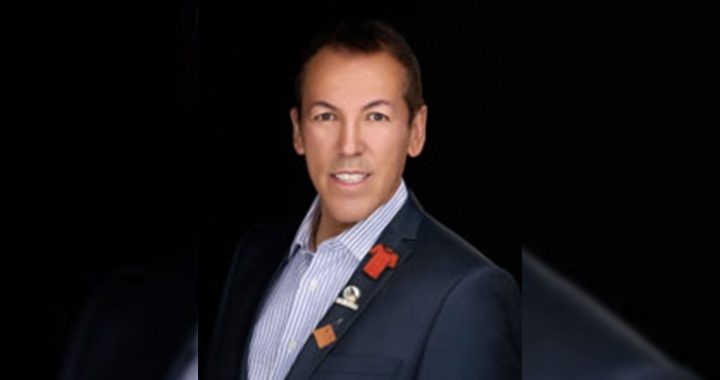Assembly of First Nations National Chief RoseAnne Archibald strode into the annual gathering in Vancouver ahead of a group of chanting supporters on Tuesday.
She led opening ceremonies and welcomed attendees in her opening address.
“The truth is like a lion,” she told chiefs and proxies in attendance and those watching online. “You don’t have to defend it, set it free and it will defend itself.
“That is what we are going to talk about today, is the truth.”
It’s been a whirlwind couple of days for Archibald who on Monday was on the AFN’s agenda to speak and by afternoon her name had vanished.
That changed Tuesday morning when her name reappeared.
“Many of you know me especially in Ontario. I am relentless in my pursuit of truth. And let me assure you that the struggle for transparency, accountability and truth is an honorable and more,” she said. “The cause, it’s good to be here standing in front you as the duly elected. National chief.”
Archibald has alleged she was attacked for trying to investigate corruption within the assembly and called for a forensic audit of the organization for the last eight years.
The assembly’s executive committee, made up of regional chiefs across the country, said on June 17 that she was suspended with pay during an investigation into four complaints against her by her staff.
Archibald has said her suspension is a violation of the assembly’s charter and a means to intimidate, punish and silence her over her claims of the possible misuse of public funds by the assembly.
“I am not suspended, regional chiefs do not have the authority to suspend a national chief. That’s why they’re bringing tail end, working backwards to bring you this motion number three, because they’re trying to cover their tracks of the mistakes they made.”

The AFN executive is sticking to its story that workplace complaints about Archibald’s behaviour and the investigation into those complaints are at the root of this conflict.
“There are a number of stories a number of narratives that surrounds this investigation and suspension and there is a truth to be had through the findings of the investigation that will take time,” said Paul Prosper, regional chief for Nova Scotia and Newfoundland.
But Archibald has her supporters.
“What she’s going through with a suspension and trying to be thrown out is really disgraceful,” said Ginger Myers Gosnell, a Nisga’a-Kwakwaka’wakw Indigenous fellow with Simon Fraser University who is at the gathering.
“This assembly should stand for up holding our matriarchs and instead they’re providing a lot of wishy-washy allegations that frankly aren’t even the worst things that Regional Chiefs have done in the past so all of this is really shady to me.”
Outside the assembly, Archibald stood her ground against the executive and said she has proof of corruption contained in an email.
APTN News hasn’t seen the email.
“The whole system at AFN has a financial corruption that needs to be fixed,” Archibald said. “The million dollar ask and my rejection of it is one example there are many examples of staff pay outs that we have to investigate under a forensic audit.”

A draft resolution before the assembly asks that Archibald be removed from the office and a new election be held because she didn’t receive the required 60 per cent of votes cast when she was elected last year.
Chief Wendy Jocko of the Algonquins of Pikwakanagan First Nation says on social media she is also bringing an emergency resolution to the floor calling for an immediate end to the “unsubstantiated and unlawful suspension” of Archibald.
The assembly meeting’s theme is “walking the healing path,” and comes a day after the AFN announced a $20-billion settlement to compensate First Nations children and their families over the harms caused by chronic underfunding of child welfare on reserves.
AFN regional chief Cindy Woodhouse, the lead negotiator on the child welfare agreement for the assembly, said the leadership issue isn’t affecting her work.
“First Nations go through turbulent times at times, but I know that we’ve been through so many things historically and I think that this work is so important that it will keep moving forward.”
The resolution to suspend Archibald failed – notes from the AFN
The vote seemed to break down along age lines with younger chiefs wanting transparency, who oppose the suspension and challenge the decision to suspend the national chief as not something the AFN executive has the authority to do. They also called for a forensic audit.
Elder and former FSIN senator Ted Quewezance opposed all of that. Two other chiefs from Saskatchewan also opposed the call for a forensic audit. But other chiefs called for the audit to go further than eight years that has been proposed.
A Yukon chief suggested the national chief and the executive needed a little reconciliation.
Tyendinaga or Mohawks of the Bay of Quinte Chief R Donald Maracle, suggested that if there were any hatchets in the possession of any of the AFN leadership, they should bury them and get on with the business of advocating for their people.
Maracle pointed out that the AFN’s insurance did not cover individual chiefs if they were sued for defamation and urged all parties to be careful in their public comments.
He said that with negotiations ongoing with the federal government for close to $80 billion, the allegations of corruption could persuade Canada to hold back on flowing that kind of money to the AFN or First Nations.
Mi’kmaq chief Terry Richardson spoke forcefully about the forensic audit being the only way forward for the AFN.
Many chiefs complained that leaks to the press had embarrassed the AFN and all First Nations people. So the lack of transparency is still a thing that will have to be dealt with.
Doug Kelly, a former Stó:lō Nation chief from B.C. said that First Nations spend a lot of time criticizing the federal and provincial governments and churches for their lack of transparency and that now, “we need to look at some hard truths.”
He also endorsed the forensic audit.
Another chief noted that it was time to change the name of the AFN’s corporate arm, the National Indian Brotherhood, saying the name excluded women.
The AFN didn’t immediately announce the numbers of the vote tally but it was clear, since chiefs voted by raising their lanyards, that only a small number of chiefs/proxies voted in favor of the resolution to suspend Archibald.
This story was updated July 5 at 8:11 p.m. ET.
With files from Paul Barnsley and the Canadian Press










